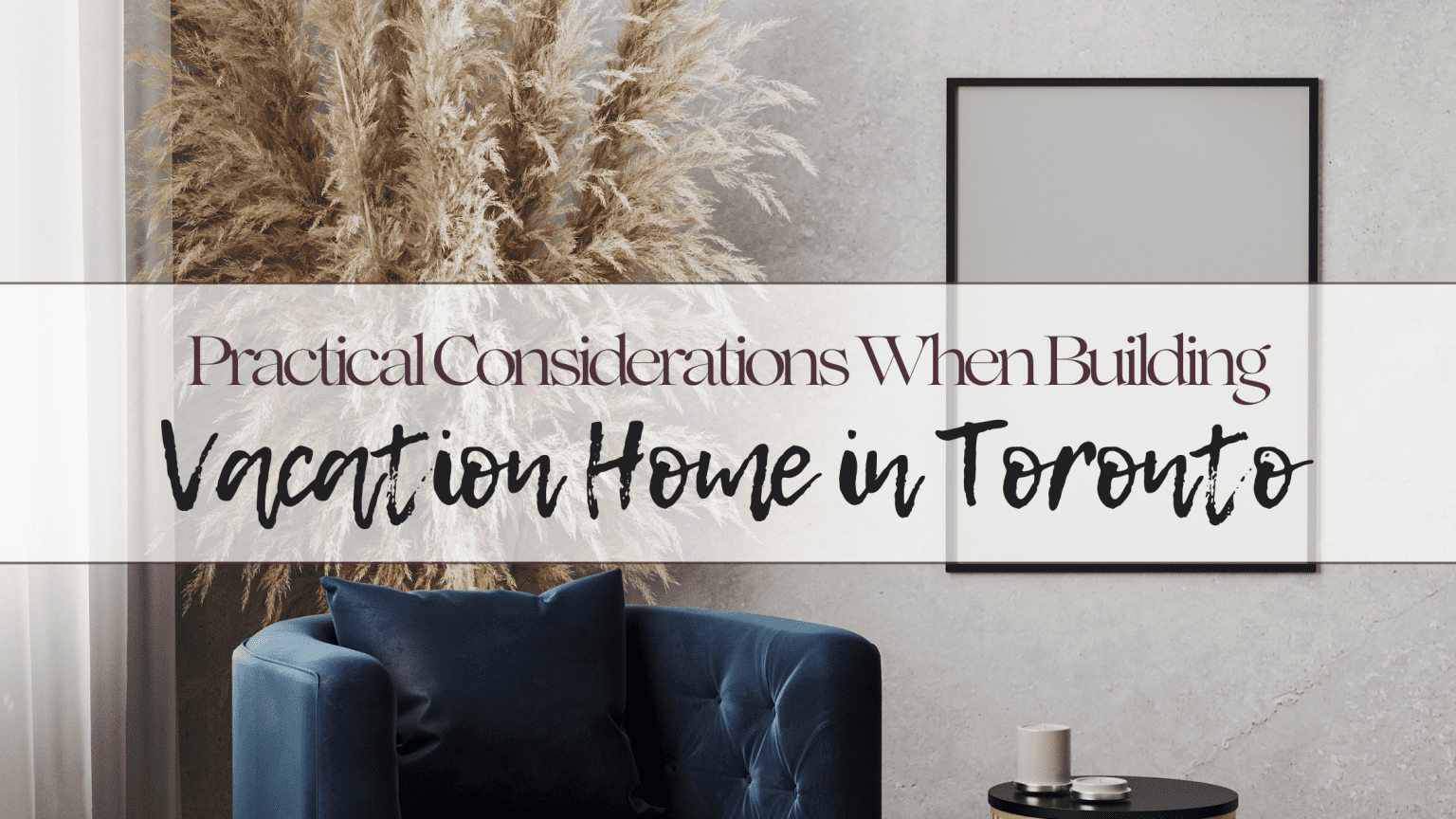For those who want a more urban retreat than might be found elsewhere in Toronto, Ontario is an excellent option for a cottage. The city is more resistant to economic shocks than smaller, rural areas, whose entire economy may rely on a single employer; the real estate market is robust and, should you choose to offload your property, it is certain to fetch a high price.
However, this does not mean that you don’t have to do your due diligence before building a vacation home in one of Canada’s largest cities. These are some of the most important considerations when building vacation properties in Toronto.
Table of Contents
Consider High Premiums for Land
There’s no getting around the fact that Toronto, Ontario is a very crowded real estate market thanks to its high urbanization; it is in the top ten for most densely populated municipalities in Canada, with 4,428 people per square kilometer. While this pales compared to Vancouver’s 5,570 people per square kilometre, it also means that land is at a premium, and you might struggle to find a good deal on raw land.
Right now, the cost of land varies widely depending on where exactly you want to build. The old city is around $160 per square foot, but North York has a value of around $103 per square foot. Some estimates even suggest that the entire Toronto metropolitan area has an average cost of $215 per square foot, which is quite costly.
However, it’s still possible to get decent deals, such as only $50,000 for a small lot. Working with a realtor and identifying attractive but affordable areas for your getaway will help you narrow down your options.
Choose a Good Home Builder
A great custom home builder is a key ally in building your dream home. The Toronto market is glutted with contractors, far more than you would find in more rural areas, but this also means that there are plenty of charlatans who overcharge for low-quality work. To ensure that you’re not hoodwinked by a fly-by-night company, you need to carefully investigate the many builders in the area.
Firstly, ask to see a portfolio of their work and identify trends in their construction. Not every builder will be able to tackle every style, and some lean more toward the traditional “cottage” look, which may not be right for the Toronto landscape. Thankfully, there are plenty of builders who are willing to do more modernistic styles.
You’ll also want to see if they have won any awards for their projects. It’s one thing to have great customer reviews, and quite another to be internationally recognized for the quality of their work. Ask to see their credentials and whether they have any award-winning projects in their portfolio.
Of course, every customer wants to know that they are getting the best deal for their money. You should gather quotes from multiple contractors and go with one that is in the midrange of the spectrum, as this means they are more likely to charge fairly but perform quality work.
Familiarize Yourself With Toronto’s Vacant Home Tax
Toronto, Ontario like many large cities, currently has a dearth of housing; because of this, they have implemented vacant home taxes, which are meant to penalize those who purchase vacation homes that will be vacant for the majority of the year. This has risen to 3% of the home’s assessed value, which is quite a steep price to pay for the enjoyment of a vacation in the big city.
A property is considered vacant if it does not have any tenants for six or more months throughout the calendar year. However, it only applies to those who have already had property taxes assessed, so the time before the assessment will not be counted against you.
Consider Tenancy
If you want to get around the VHT, you will need to show proof that the property is occupied for at least half of the year. This may seem impossible if you only intend to stay there for a few weeks each year, but you do have options; you could turn your vacation home into an Airbnb when you are absent or sign month-to-month leases with tenants. Turning it into a vacation rental also means that you will generate cash flow from the property while still avoiding those pesky 3% taxes.
Should you choose to go this route, talk about it with your builder so that they can advise you on alterations you may want to make to ensure that your property value won’t drop due to short-term tenancy. They can help you identify a cottage that you enjoy staying in when you’re not busy but that will also satisfy potential tenants.
A home in Toronto is a great asset, and it’s even better if you can visit for a while in the comfort of your property and then return to your primary residence. However, it’s critical that you think about the logistical and legal implications of building a cottage. Work with a great contractor familiar with the Toronto home-building scene, and you’ll have an excellent experience relaxing in the big city.


Pierre Carapetian
Pierre Carapetian is the Broker Of Record for Pierre Carapetian Group Realty with over 12 years of experience in the real estate market. As a proud Torontonian and real estate broker, he prides himself on knowing this city inside out. He started investing at the age of 18 and has facilitated over half a billion dollars in real estate transactions.


